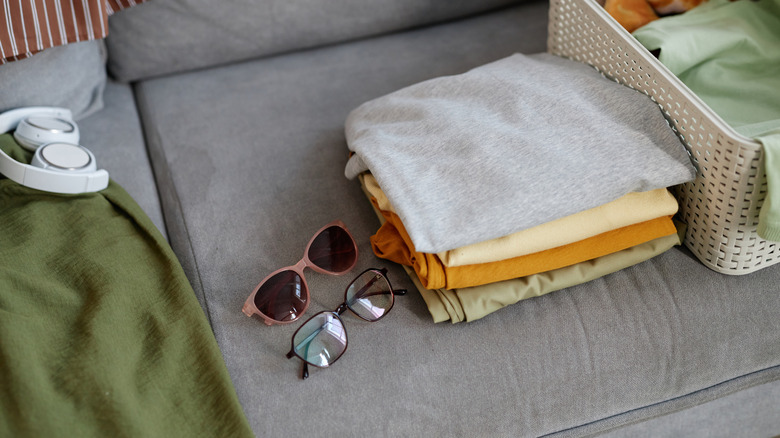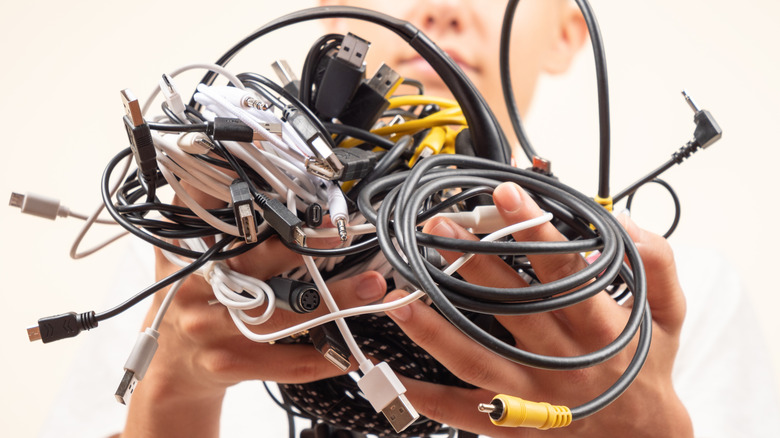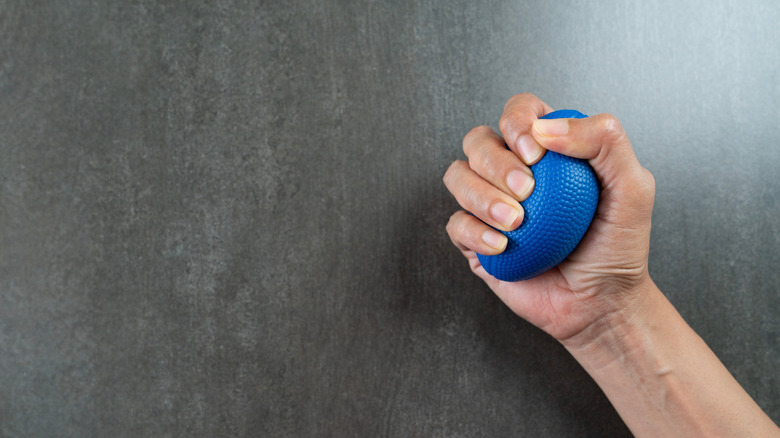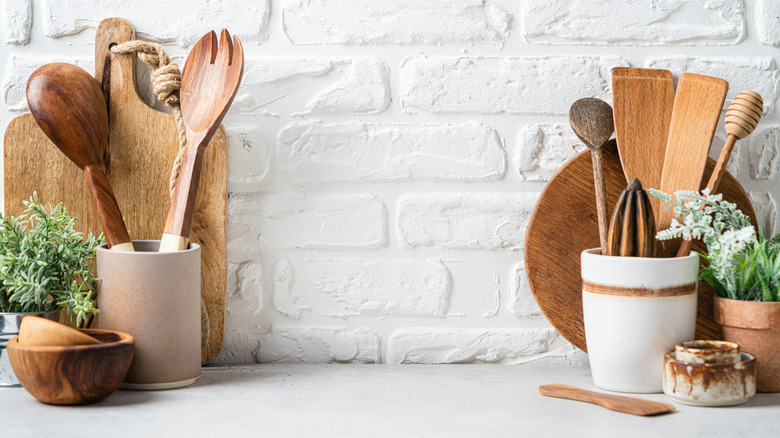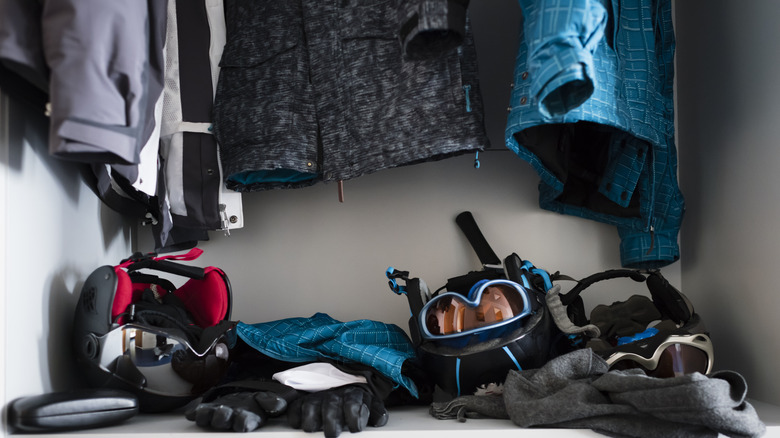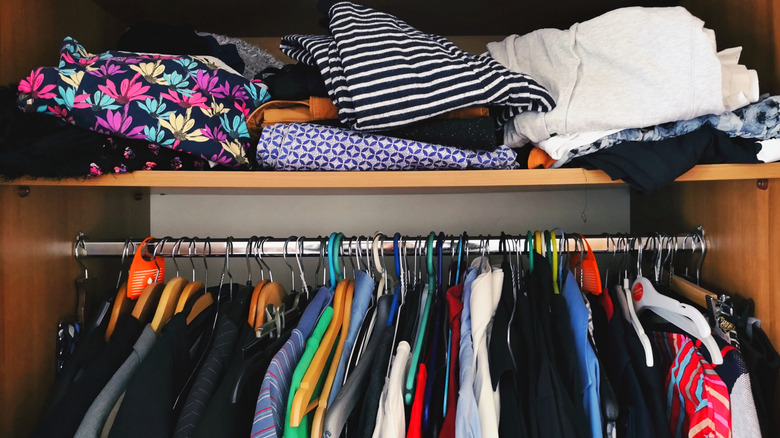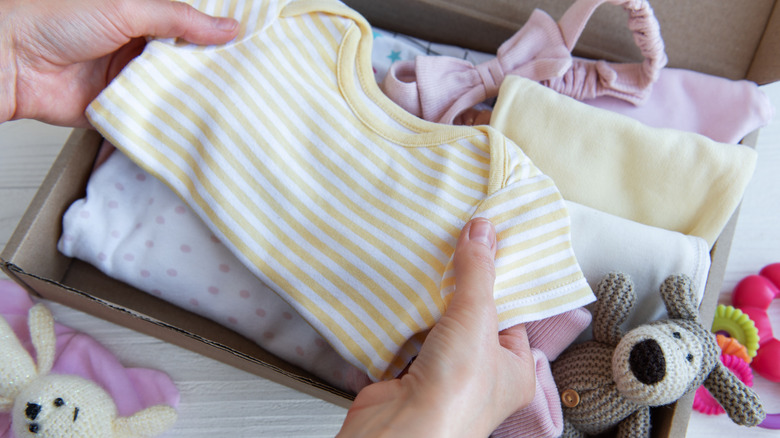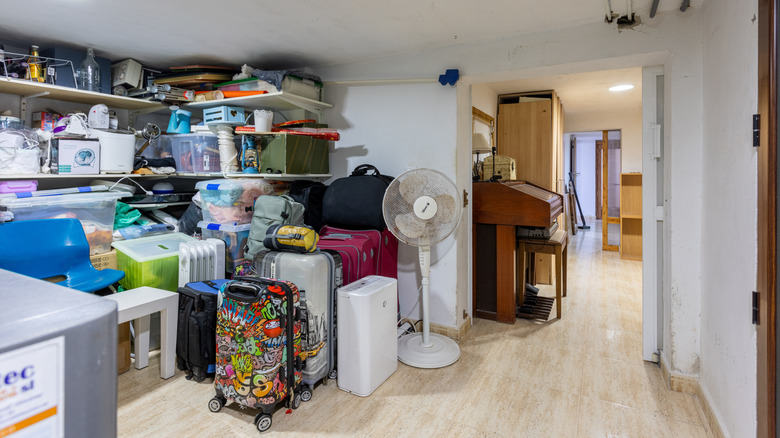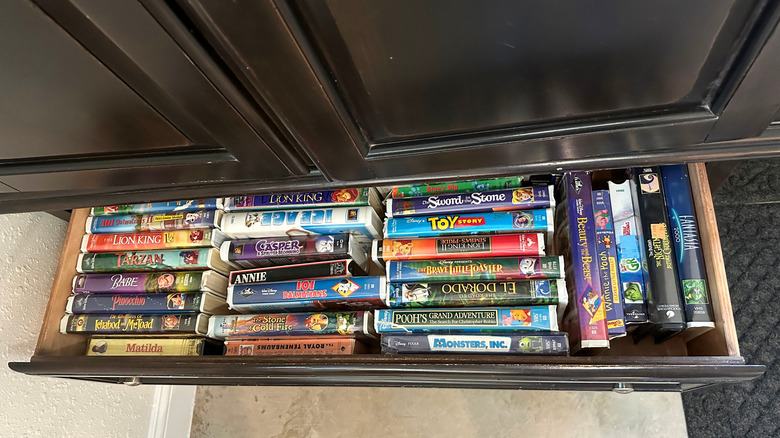12 Types Of Mess That You May Not Realize You Should Declutter From Your Home
Dealing with clutter in your home can be one of the most frustrating experiences. It doesn't matter whether you live in a house, apartment, or condo; a cluttered space quickly begins to feel like it's all just chaos. You may go around and declutter your individual shelves or drawers, but that can be just the beginning of your clutter situation. There are multiple types of messes lurking in your home that you might not realize you should declutter. Either you actually don't see it or don't understand how it constitutes clutter.
It's tricky to determine if something is clutter if it isn't actively spilling off a shelf. Even if you have things neat and orderly, there can still be clutter occupying your space and mind. It might be something simple that you can't get rid of, such as a former gift or a sentimental object. One way to prevent clutter from accumulating in your home is to consider how you are and aren't using your belongings. You can start by going through each room in your home, assessing the contents, and thinking about whether you've used the items recently or if they're just taking up space. Don't know where to start? Here are 12 types of mess that you may be able to tackle in your home.
Random tech and accessories you don't use
Tech clutter can take many forms, but one thing it has in common is that it takes up space. From chargers to spare battery packs, our gadgets often come with a lot of stuff. After upgrading to a new phone, you might still be holding on to incompatible chargers or phone cases, with no plans to use them in the future. You can check with friends, family, or your local neighborhood group to see if anyone needs them. If not, take them to an electronics recycling collection point, such as Best Buy.
Swag and freebies from events
Attending a festival or event might come with "swag," or free promotional items, often with company names. Some may be useful, while others are clutter, piling up in a cabinet or shelf. One visit to the fair, and you might come home with a stress ball from an insurance company and a handy magnet from a real estate agent, only to realize you're not going to use either. Let them go. Is there a branded mug among the clutter? See if you can remove the corporate logo and repurpose the coffee mug.
Duplicate items
Is two items better than one? Not if you aren't using the extra regularly. Take a look around your home; you might have duplicate cookware, picture frames, or even sheets that are just wasting space. Check all of your regular clutter spots, like inside a desk drawer or your kitchen cabinets, to identify the doubled-up items. If you don't regularly use them, reclaim the space and declutter your duplicates.
Supplies from abandoned sports or hobbies
You decided to take up tennis or skiing, only to get bored and leave the gear in the closet. Pursuing a new hobby or sport often means buying a few items to get you started. Yet, when you lose interest, you don't necessarily get rid of everything you bought during the process, especially as you think about your initial investment. Instead, make room for your new interest and do a sweep of what you don't use, finding new homes for them via donation, a yard sale, or free stuff/ Buy Nothing groups.
Gifts you don't love
Holidays and birthdays may come with unwanted gifts, but there's no rule that says you should keep them. Gift guilt may have you keeping things you don't like, which is a quick trip to clutter. You might end up just shuffling it to random spots in your home, instead of donating or rehoming it to someone who will love it. It's time to get rid of all of the gifts brimming with guilt, including the candle you won't burn, the chicken-printed dish towel, or the glossy book of photos from a city you've never visited.
Clutter that's out of sight
Even if you don't see it or it's not in the open, it can still be clutter. You might have bins in the closet, boxes under your bed, or things stashed in a junk drawer, but since you don't see them, you think it doesn't impact you. However, these hidden items can take up space in your home and in your mind, especially if you consistently think "I should really clean that out." Clear your mind and your home by sifting through these items, then give yourself permission to say goodbye.
Sentimental clutter
One of the worst types of clutter, but also pretty common in homes, is sentimental clutter. Here you're holding onto something from your past, whether it's a holiday card from a parent, baby clothes from your firstborn, or an heirloom from grandparents that you don't really like. You feel guilty about the idea of getting rid of it and think that your loved ones might be mad at you for doing so. You then keep the items, but that doesn't make them useful. It's okay to let these pieces go, especially if they no longer serve you.
Clothes you don't or can't wear
Your closet or drawer likely has clothing you can't wear, perhaps because of uncomfortable fabric or a missing zipper. Maybe you have a bridesmaid dress from several years ago that hasn't seen the light of day since the wedding, and it's just taking up valuable space. Clothes that fall in a "don't wear/can't wear" category aren't of use to you anymore. Clear them out to make room for clothes you love. You may feel guilty because the item was expensive, but consider the cost you pay when not using it.
Things you'll get to someday
We all have it: the "someday" pile. The collections of things that we need to repair or sort through. Old documents you meant to file, clothes you might want to mend, or a pair of headphones with a broken piece. You may hold on to these days, but "someday" never comes, leaving you with random unfinished projects all over the house. Sweep through the piles to do the task, sort them into the correct spot, or get rid of what you won't use.
Paper piles
Paper, such as bills, notes, and brochures, can quickly become unwieldy when you're too busy to go through it. You may not realize that the paper piles are still clutter, even if they could be useful one day. Sort through it, filling and digitizing what you do need, then get rid of what's left. If you frequently deal with unwanted mail, try a handy trash can hack to prevent junk mail from piling up. You can also opt for paperless billing statements to cut down on the paper.
Clutter-in-waiting
Similar to the "someday pile," there may be clutter consisting of things you're holding onto for future use. It may be that bestselling novel you've sworn you'll read for six months now, or the set of free weights you bought with the intention of working out regularly. These types of items represent a future in which you actively use them, but they also become clutter in the present. Give yourself a timeline on when you'll use them, then stick to it. Once your deadline passes, repurpose or rehome them.
Media you don't read or watch
Even if they look neat on the shelf, books, DVDs, and other physical media you haven't picked up in a while can still occupy valuable space, especially if you regularly stream everything. If you haven't read the book lately or watched that video, don't let them just accumulate dust. Try placing it in a Little Free Library in your neighborhood or donating it. If you have kids and can't bear parting with some of the classic children's movies, try using a DVD storage solution and get rid of the bulky boxes.
